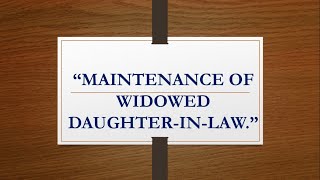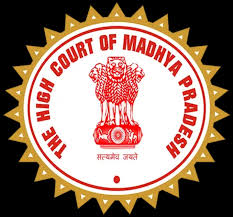L. Narasimha Reddy, J.@mdashThe 1st respondent filed O.S. No. 321 of 1999 in the Court of Principal Junior Civil Judge, Proddatur, against the 2nd respondent, the appellant and respondents 3 and 4, for the relief of recovery of certain amount. He pleaded that the 2nd respondent entered into an agreement of sale with him, on 3-7-1978, offering to sell an item of immovable property for a sum of Rs. 1,50,000/-, and received Rs. 75,000/-, as advance. It is stated that, shortly thereafter, the 2nd respondent executed sale deeds in favour of the appellant and respondents 3 and 4, as regards the same property. The suit was opposed by the appellant and respondents 2 to 4. The 2nd respondent did not deny the execution of agreement of sale in favour of the 1st respondent. The appellant and respondents 3 and 4 filed common written statement, asserting their title over the property on the basis of sale deed, dated 18-12-1998. Though its judgment, dated 22-4-2002, the trial Court decreed the suit, and created charge over the property, owned by the appellant. A.S. No. 126 of 2002, filed by the appellant, in the Court of II Additional District Judge, Kadapa, was dismissed, on 27-7-2007. Hence, this Second Appeal.
2. Sri M.N. Narasimha Reddy, learned Counsel for the appellant, submits that the only way, through which the 1st respondent could have enforced his right, under the agreement of sale, was to file a suit for specific performance, and that a suit for mere recovery of amount was not proper remedy. He contends that it is impermissible in law to create charge over the property, owned by an individual, as regards the debt owned by another.
3. Sri K. Sitaram, learned Counsel for the 1st respondent, submits that the trial Court passed a decree following the law laid down by the Supreme Court and other High Courts, and no interference is warranted.
4. The suit was filed for recovery of certain amount, paid as advance, under an agreement of sale. The trial Court framed the following issues, for its consideration:
(i) Whether the suit agreement of sale is true, valid and genuine?
(ii) Whether the plaintiff is entitled for the suit claim?
5. On behalf of the 1st respondent, P.Ws. 1 to 3 were examined, and Exs. A-l to A-6 were filed. On behalf of the appellant and respondents 2 to 4, D.Ws. I to 4 were examined, and Exs. B-l to B-6 were filed. The trial Court held the agreement Ex. A-l to be valid and true, and decreed the suit. A charge was created on the property, purchased by the appellant, as prayed for in the plaint. In A.S. No. 126 of 2002, filed by the appellant, the lower Appellate Court framed, only one point for its consideration, viz., "whether the 1st respondent was entitled for the decree, as prayed for?"
6. The principal ground urged by the appellant and respondents 2 to 4, while opposing the suit filed by the 1st respondent, was that, once the right is based upon an agreement of sale, the only remedy open to the 1st respondent was to file a suit for specific performance. Before this Court also, same point is urged and reliance is laced upon Sections 20 and 22 of the Specific Relief Act, 1963 (for short ''the Act''). It is, no doubt, true that in a suit for specific performance, a buyer can pray for the alternative relief of partition, or refund of the earnest money, as provided for u/s 22 of the Act. However, the Act does not place any bar on a buyer to file a suit for mere recovery of the earnest money. When there is no bar upon the buyer to seek mere relief of recovery of the amount, particularly when the property has already been sold in favour of the third parties, the suit cannot be said to be not maintainable. The trial Court placed reliance upon a judgment of Madhya Pradesh High Court in
7. The second ground of attack on the judgments rendered by the trial Court and lower Appellate Court is as regards the creation of charge over the schedule property. Section 55 of the Transfer of Property Act, confers right upon a buyer not only to seek refund of the earnest money, but also for creation of charge over that very property. The only exception is that, he should not have declined to accept the delivery of the property, in pursuance of the agreement of sale. The 2nd respondent did not plead that he offered to deliver the property to the 1st respondent and that the latter declined to accept the same. Therefore, the circumstances, provided for u/s 55 of the Transfer of Property Act, get attracted to the facts of the case. In Delhi Development Authority v. Skipper Construction Company (P) Limited (2) AIR 2000 SC 573, the Supreme Court held that the change can be created not only against the seller, but also against any one claiming through him. Undisputedly, the appellant is claiming the property through the 1st respondent, the seller. Therefore, the charge created is perfectly legal.
8. It is a different thing that the principal obligation to refund the earnest money is upon the 2nd respondent, and being the subsequent purchaser or that very property, the appellant can insist that the 1st respondent shall take steps to recover the amount, against the 2nd respondent. The charge upon the property has to be kept almost, as reserve, so that the 1st respondent can fall back on it, in the event of his inability to recover the amount from the 2nd respondent.
9. Hence, the Second Appeal is dismissed. It is, however, made clear that it shall be open to the appellant to insist that the 1st respondent shall take steps to recover the amount against the 2nd respondent, before any steps are initiated to enforce the charge.
10. There shall be no order as to costs.

